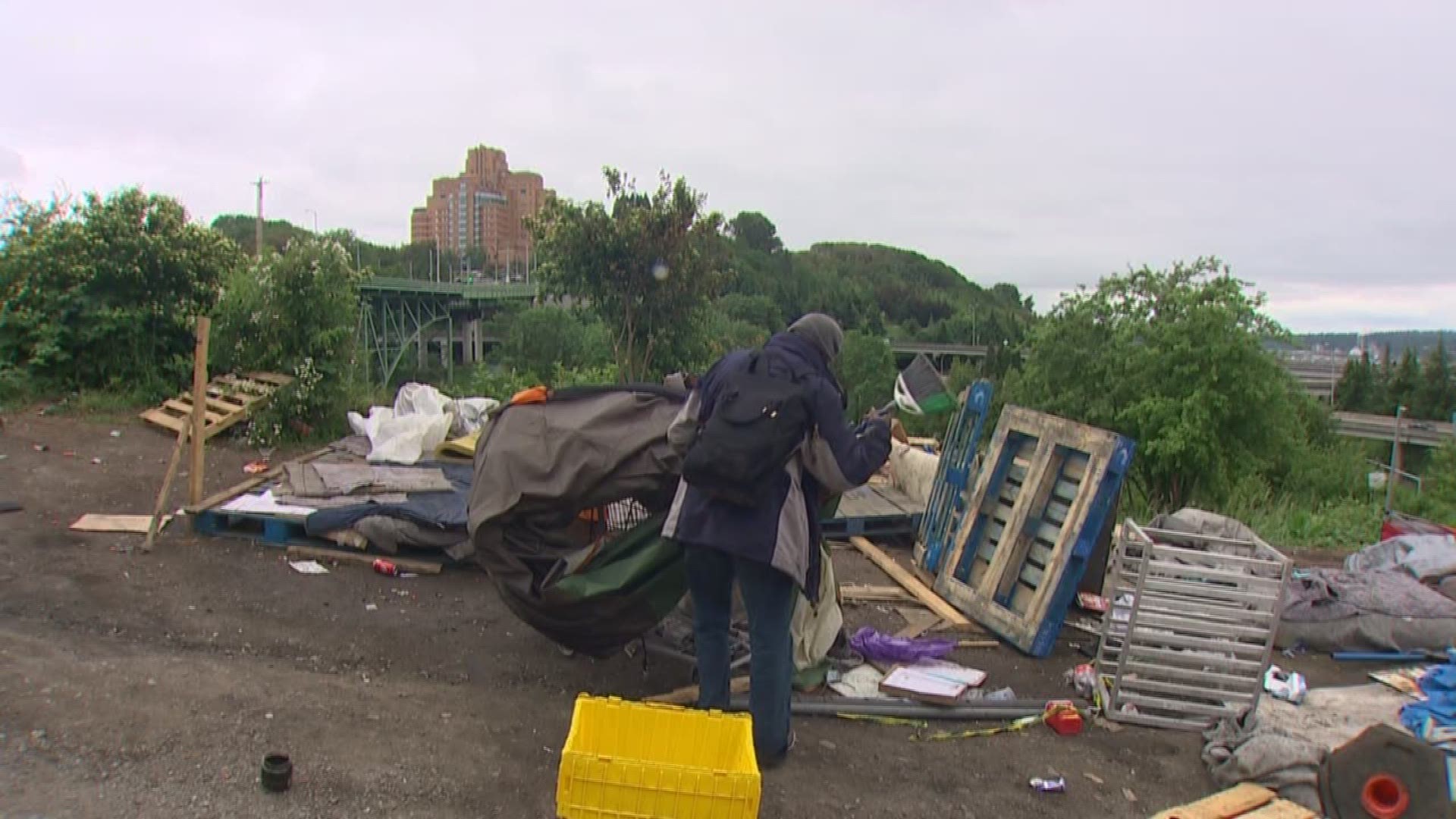Washington state will spend more than $2 million to clear homeless encampments on state-right-of-way in Seattle and Tacoma. The money will be allocated from the state's transportation budget.
The money was approved officially this week and comes after a bi-partisan effort to create a specialized Washington State Department of Transportation (WSDOT) response team for encampment removal.
“We have debris going into the highway. The safety concern is rather high. We have to nip this in the bud right away,” said Senate Transportation Committee Chair Steve Hobbs. The Lake Stevens Democrat has been vocal about the trash, debris, and bio-waste that has been piling up on state property.
“If you have a tent blow into the highway, or other debris, someone is going to get killed. And the public is going to demand why we didn't so something in the first place," Hobbs said.
His legislation allots $1,025,000 to hire four full time employees “dedicated solely to collecting and disposing of garbage, clearing debris, or hazardous material, and implementing safety improvements where hazards exist to the traveling public…. along rights-of-way in the Seattle area.”
Another proviso, the House transportation committee, appropriates $1,015,000 to address safety and public health problems in Tacoma “created by homeless encampment on the department’s property along state highways within the city limits.”
Hobbs, was joined by his colleagues on both sides of the aisle, in both chambers in writing a letter to the State Patrol Chief and Transportation Secretary asking for immediate action. That letter, dated May 8th, was written before the budget was finalized.
While the funding won’t kick in until July 1st, WSDOT is already hanging out the hiring sign.
“We’re pleased the Legislature provided us additional funding,” said Dave McCormick, WSDOT’s assistant regional maintenance administrator.
He testified before the Senate Transportation Committee in February, asking for additional resources. McCormick hopes the crew can be trained, and activated in July, and begin sweeping the roadside camps this summer.
“I think we're going to make a difference. Will it solve the problem? No, it's not going to completely solve the problem, but I think we're going to make some good headway," McCormick said.
There has been Seattle blow-back to state intervention in the past, especially after Hobbs' committee allocated money for fencing.
“I hope the city of Seattle understands this is not an adversarial thing. This is not an aggressive move against them. I believe this is a cooperative effort,” said Hobbs, who also won’t rule out the possibility of future barriers or fencing of state land.
“I hope it does make a difference, I hope it makes our freeways safer.”

